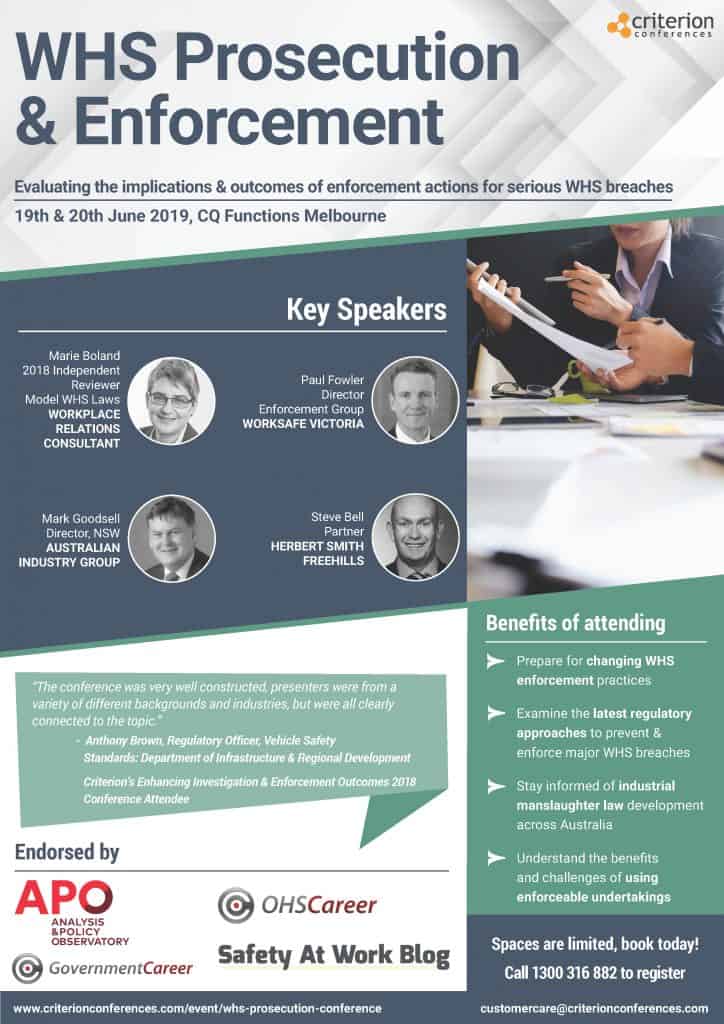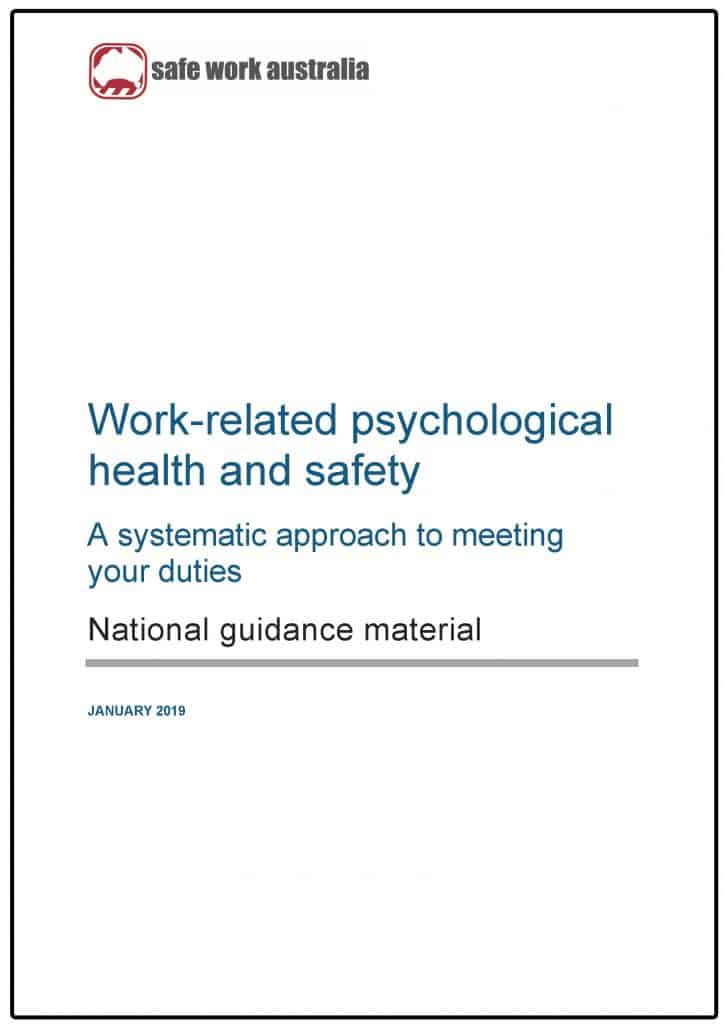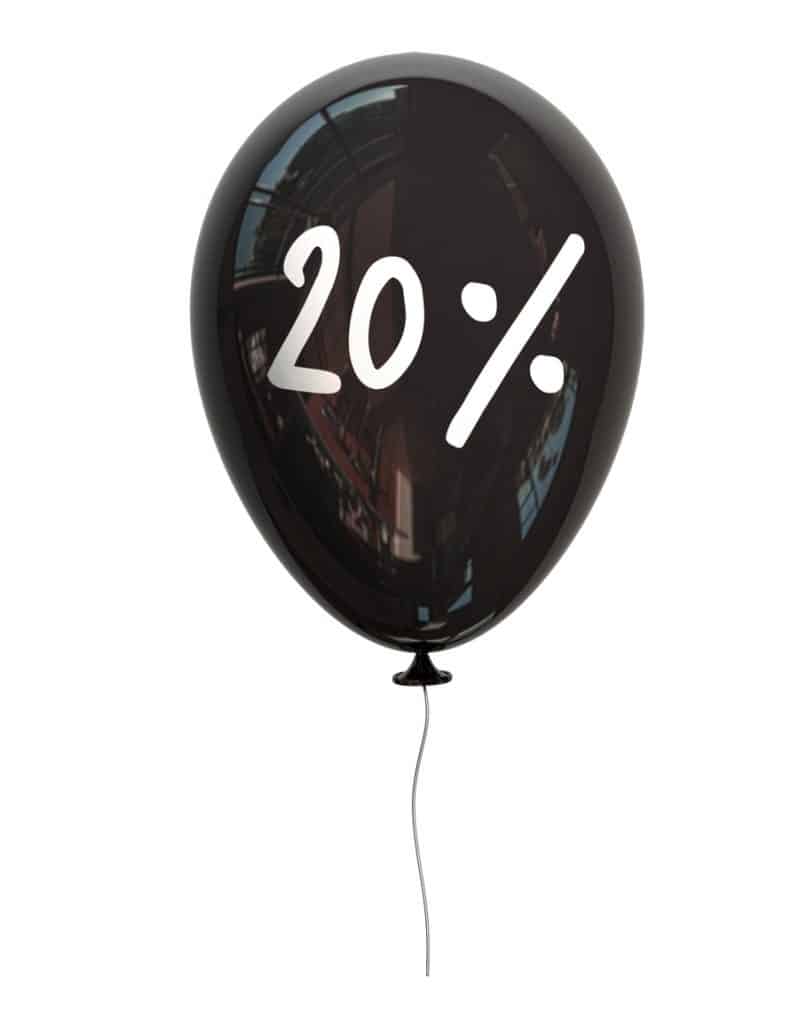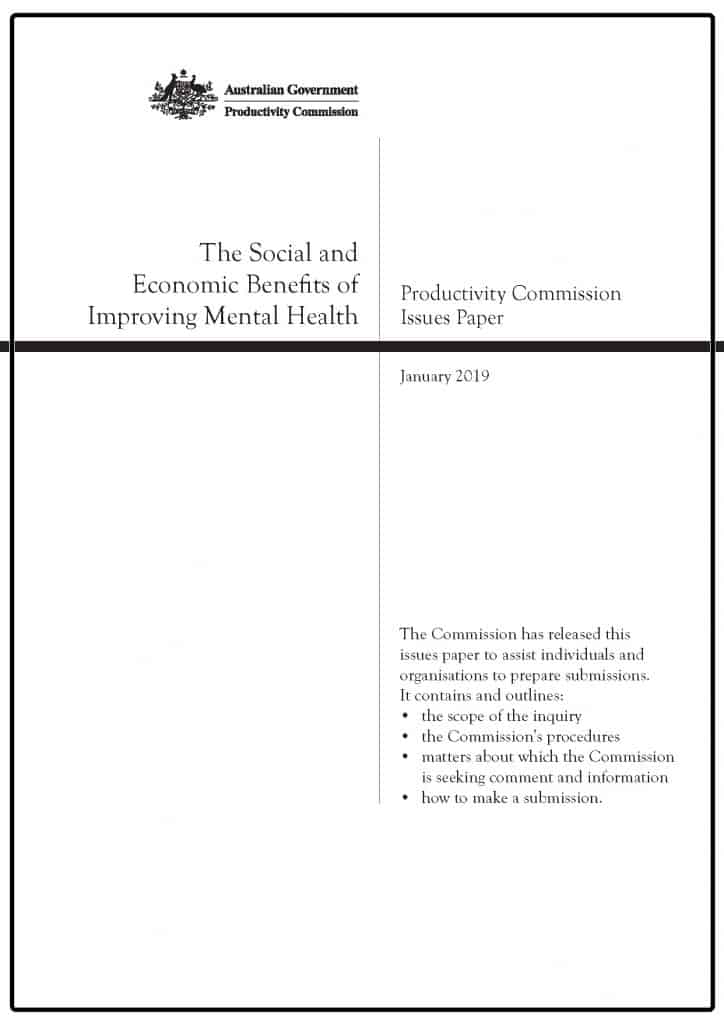
One of the hottest occupational health and safety (OHS) issues at the moment is Industrial Manslaughter but this is just one aspect of the enforcement of OHS and prosecution for breaches. In June 2019 a two-day conference on OHS/WHS Prosecution and Enforcement is being held in Melbourne, Australia with a list of respected speakers who are prominent in Australian labour law circles.
The conference is more expensive than some other OHS conferences but the list of speakers is impressive and the theme could not be more topical. (A brochure is available for download) Until March 15 2019, Criterion Conferences is applying an Early Bird discount of $500 for each delegate. SafetyAtWorkBlog has negotiated a further discount applicable to Subscribers only.




